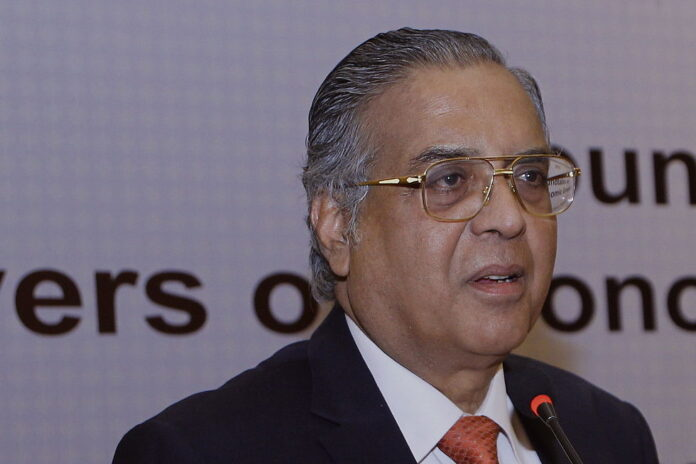Former Federal Finance Minister Dr. Hafeez Pasha said on Monday that ongoing economic challenges can be tackled as the country had faced difficult economic condition in the past but handled carefully.
He was addressing a conference on Medium Term Economic Outlook of Pakistan here at the Lahore Chamber of Commerce and Industry (LCCI).
Dr. Hafeez Pasha said that the average GDP growth of Pakistan during the last four years has been 2.5 percent, while the population has also increased at the rate of 2.5 percent, which means that the average income has not improved.
He said, “Our economy suffered Covid 19 and floods but we are a committed nation. In 1971 and 1998, we also faced difficult economic conditions but handled those carefully. During the last 15 years, our exports have increased at the rate of two percent annually, while imports have increased at the rate of 8 to 9 percent, due to which our current account deficit and trade deficit have increased.”
Pasha mentioned that in the year 2017-18, Pakistan’s current account deficit was US $ 19 billion, asserting that currently, the external debt has exceeded US $130 billion and the country needs 22 to 25 billion dollars every year for debt management. He said that the reserves of State Bank of Pakistan are US $ 8 billion.
He said that unemployment in the country was previously seven percent, which has now reached 10.5 percent; Poverty has also increased by the same proportion and the poverty rate has increased from 33 percent to 45 percent while at present, 20 million educated youth are unemployed in the country.
Dr. Hafeez Pasha said that the main lifeline of country’s economy lies in rise in exports and tax revenue. “In 1960, we introduced the bonus voucher scheme that should be re-introduced. This will increase exports and decrease imports. A similar model exists in Bangladesh. For increase in tax base, we have to increase the tax collection rate from more sectors like agriculture and real estate. Currently, our industry is bearing the highest tax burden. We have to reduce the losses in the power sector, especially the DISCOs. We have to reduce the losses of national institutions or privatize them,” he concluded.
On this occasion, the LCCI President Kashif Anwar highlighted the issues being faced by the country and their doable solutions. He was of the view that the biggest problem at the moment is the rupee devaluation which is increasing the inflation and its results are also visible in the form of soaring external debt.
“We have to take concrete measures for loss-making state-owned enterprises. Either they should be privatized or restructured,” he suggested.

